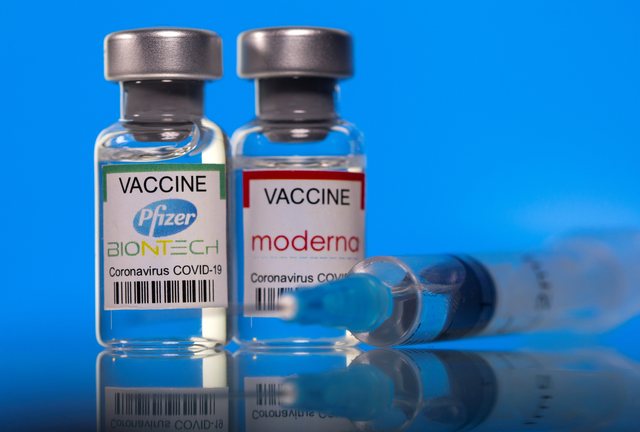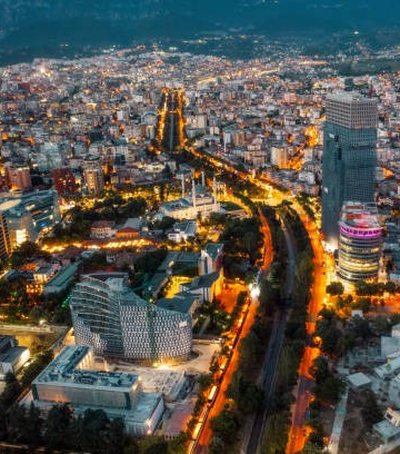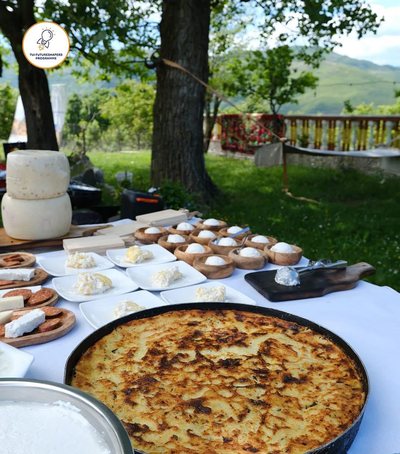
According to a recent German study, the combination of AstraZeneca and BioNTech vaccines elicits an extremely stronger immune response compared to making both doses from the same vaccine.
Following approval by the European Medicines Agency in January, the AstraZeneca vaccine against COVID-19 was administered to all adults in Germany.
After it was discovered that especially young women who received the dose of this vaccine faced an increased risk of blood clots in the brain, the German Standing Committee on Vaccination (Stiko) recommended in April the limited use of AstraZeneca for people over 60 years old.
This meant that some people who had taken their first dose of AstraZeneca then had to take BioNTech-Pfizer or Moderna as a second dose. Today, all adults in Germany, regardless of their age, can be vaccinated again with AstraZeneca, if they have talked in advance with their doctor about the possible risks that this vaccine may cause.
But a new study shows that combining two different vaccines may be more effective than just an emergency solution. Researchers at the University of Saarland in West Germany have found that people who took the first dose of AstraZeneca and the second dose of BioNTech-Pfizer showed a stronger immune response than patients who took two doses. of the same vaccine.
So is it the right time for us all to switch to this combination of vaccines? Not yet.
Preliminary results
The University of Saarland's results are preliminary and have not yet been fully evaluated scientifically, the university said in a press release. Before the researchers formally publish their findings, they will examine the role that age and gender of patients have played, and will also delve even deeper into which combinations can cause more severe side effects.
Although a full evaluation of the data has not yet been completed, the team that conducted the study was surprised by the results obtained. "That is why we wanted to share our results now and not wait for the scientific evaluation process to be completed," Martina Sester, a professor of infectious immunology at the University of Saarland, told a news conference.
10 times more antibodies
About 250 people took part in testing conducted at the University Hospital in Homburg, Saarland, in recent months. Some of them received two doses of AstraZeneca, some received two doses of BioNTech-Pfizer and a third group received one dose of AstraZeneca and the other from BioNTech.
The researchers compared the strength of participants' immune responses two weeks after the second dose.
"We were not only looking at the number of coronavirus antibodies that had been created in the participants, but also how effective the so-called neutralizing antibodies were," Sester explained.
"This shows us how strong the antibodies are in preventing the virus from entering our cells."
In terms of antibody development, the two-dose BioNTech vaccine as well as the combined AstraZeneca-BioNTech vaccine were significantly more effective than the two-dose AstraZeneca vaccination.
Participants who had taken one of the first two dosing alternatives produced about 10 times more antibodies than those who had received two doses of the AstraZeneca vaccine.
And in terms of the level of neutralizing antibodies, the result in people who had received the combination of doses from different vaccines, was even higher compared to those who had taken two doses of BioNTech vaccine, Sester further said.
Since there have been no changes to the regulatory recommendations for the BioNTech vaccine, there are few known cases of people taking a dose of BioNTech-Pfizer before a dose of AstraZeneca.
"Extraordinary" stimulation in the production of antibodies
The results of the CombivacS study, conducted on 663 participants at the Carlos III Health Institute in Madrid, were similar to the above results. Preliminary results of the study were reported in the scientific journal Nature.
Like the results from the University of Saarland, they are not yet final and the publication in Nature is a summary of what researchers in Spain have discovered so far, and not a complete article, also peer-reviewed.
Two-thirds of participants received one dose of the BioNTech-Pfizer vaccine after their first dose of AstraZeneca.
Magdalena Campins, one of the researchers in the CombivacS study at the Vall d'Hebron University Hospital in Barcelona, ??reported that those who received the full combination of vaccines began to produce much higher levels of antibodies after their second dose.
Vaccine combination "should be taken seriously"
The combination of AstraZeneca and BioNTech-Pfizer vaccines appears to be a promising way to immunize people against COVID. This is not because the two vaccines have similarities to each other. They represent two types of COVID vaccines that are currently on the market.
AstraZeneca is a traditional vector vaccine that uses a harmless type of another virus to instruct human cells to produce antibodies against the coronavirus.
BioNTech jab is an mRNA vaccine, a new type of immunization method. MRNA vaccines teach human cells how to make a protein that in turn triggers an immune response and the production of antibodies.
Researchers do not yet have enough information to know why the combination of these two vaccines could result in increased immunity. Saarland University Professor, Mrs. Sester, said she was looking forward to seeing more research done on the combination of different types of vaccines and how they interact with each other.
"We believe that if other research teams reach similar conclusions to ours, the combination of vector vaccines and mRNA should be seriously considered," she concluded.





